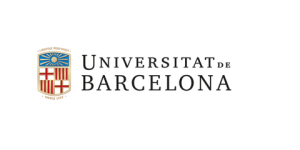This course is closed.
Interested in climate change, renewable energy and efficiency, forest management and conservation as well as other current and emerging sustainability issues?
Join the Center for Environmental Research and Conservation (CERC) at the Earth Institute, Columbia University to learn about the science and practice behind these issues from leading faculty and researchers, as well as practitioners from the public and private sectors.
- Courses meet once a week in the evenings for five weeks (or less).
- Candidates from all professions and interests are eligible to enroll.
- Rolling admission deadlines.
You can take individual courses or enroll into CERC’s Certificate in Conservation and Environmental Sustainability program, which (with an official transcript form Columbia University) can be completed in 9 months or 3 years.
REGISTER NOW for our April/May Courses:
- Mainstreaming Climate Change into Development (begins Apr. 8) -Energy and Sustainability (begins Apr. 12)
- Evolution: Darwin to DNA (begins Apr. 13)
- Forest Management and Conservation (begins May 5)
Mainstreaming Climate Change into Development
Juan Pablo Bonilla, Unit Chief, Sustainable Energy and Climate Change, Inter-American Development Bank
This workshop will discuss how to mainstream climate change into economic and social development. It will introduce the main outcomes from the Conference of the Parties in Cancun (COP16) in terms of challenges and opportunities, within the Latin America and the Caribbean (LAC) Region and discuss the financing structure proposed for climate change. It will discuss the topics of Multilateral Development Banks in financing and scaling up investment in climate change, the role of the public and private sectors and bilateral cooperation, and institutional frameworks for incorporating climate change mitigation and adaptation into development policy. The workshop will conclude with a group exercise in stakeholder analysis about mainstreaming climate change into the public/private sector of a LAC country.
Dates: Friday, April 8; 6-8PM & Saturday, April 9; 8:30AM-4:30PM
Energy and Sustainability
Kathleen Callahan, School of International and Political Affairs, Columbia University
This course examines the evolution of issues, attitudes, and policies surrounding energy production and use over time. The class offers a critical examination of current trends in consumption and production, and discusses potential future sources of energy. Participants are introduced to current technologies, philosophies and policy approaches. Present thinking on energy and sustainability is evaluated to enable the class to ask new questions about these topics, as well as to generate innovative ideas on this prominent global issue.
Dates: Apr. 12, 26, May 3, 10, 17; 6:10-8:10PM
Evolution: Darwin to DNA
Ana Luz Porzecanski and Martin Mendez, American Museum of Natural History
This course offers an overview of key concepts of biological evolution, beginning with the pre-Darwinian attempts to describe life through modern genetic theory. The course emphasizes the history of evolutionary thought and science and reviews the basic principles of evolutionary theory. The discussion includes the implications of evolutionary theory for modern life, as well as for state-of-the-art technologies, such as genomics. Topics covered include natural selection, types of fitness and variation, speciation, reproduction and the transfer of genetic traits, the structure of DNA and a look at evolution over the long term via introductory systematics.
Dates: Apr. 13, 20, 27, May 4, 11; 6:10-8:10PM
Forest Management and Conservation
Matthew Palmer, Columbia University
Forests are a vitally important habitat for much of the world’s terrestrial biodiversity, as sources of timber and food and for providing services such as carbon storage and water filtration. However, forests worldwide are threatened by overexploitation, conversion, climate change and invasive species. This course introduces several key issues in forest ecology and management through a local lens. On an all-day field trip to Black Rock Forest (a field station for scientific research, education, and conservation in the Hudson Highlands), participants will study how pathogens and other invasive species affect forest structure and function. The field trip will facilitate local observations that will be scaled up to consider how these issues affect forest conservation on a global scale.
Dates: May 5, 12; 6-8PM & Saturday May 14; 9AM-3PM


